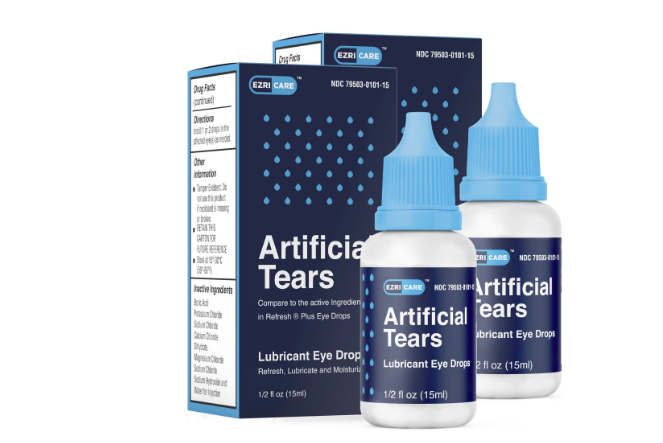
February 01, 2023
 Contributed/EzriCare Artificial Tears
Contributed/EzriCare Artificial Tears
The CDC is warning consumers to discontinue the use of EzriCare Artificial Tears while it investigates whether the eye drops are the source of a string of drug-resistant bacterial infections.
Consumers are being advised to discontinue using EzriCare Artificial Tears because the eye drops have been linked to a string of drug-resistant bacterial infections.
At least 50 people in 11 states, including New Jersey, have been diagnosed with infections caused by Pseudomonas aeruginosa, a bacterium resistant to most antibiotics, dating back to May 17, according to the U.S. Centers for Disease Control and Prevention. Eleven people developed eye infections, including three who ended up blind in one eye. Others suffered respiratory or urinary tract infections caused by the bacteria; one person died after the infection entered the bloodstream.
The majority of the people who developed infections reported using preservative-free EzriCare Artificial Tears prior to the start of their illnesses. The CDC has not yet determined whether the eye drops are the source of the infections, but the agency has found evidence of the bacteria in opened bottles. It is testing to see whether the strain of the bacteria in the eye drops matches the one found in the patients. Unopened bottles of the eye drops also are being tested.
Pseudomonas aeruginosa is a common bacterium that can be found in water and soil, and even on the hands of otherwise healthy people. Most infections occur among hospitalized people with weakened immune systems.
Because the EzriCare Artificial Tears linked to the infections are preservative-free, they don't have any added ingredients to prevent microbiological growth. The eye drops could have been contaminated during the manufacturing process or when a person with the bacteria on the skin opened a container.
EzriCare, which is based in Lakewood, New Jersey, said that they had not received any consumer complaints, or reports of adverse events, as of Jan. 24. Though it has not been asked to conduct a recall, the company urged consumers to discontinue the use of any EzriCare Artificial Tears until there are more details about potential safety concerns.
Signs of an eye infection include pain, swelling, discharge, redness, blurry vision, sensitivity to light and the sensation of a foreign object stuck in the eye.